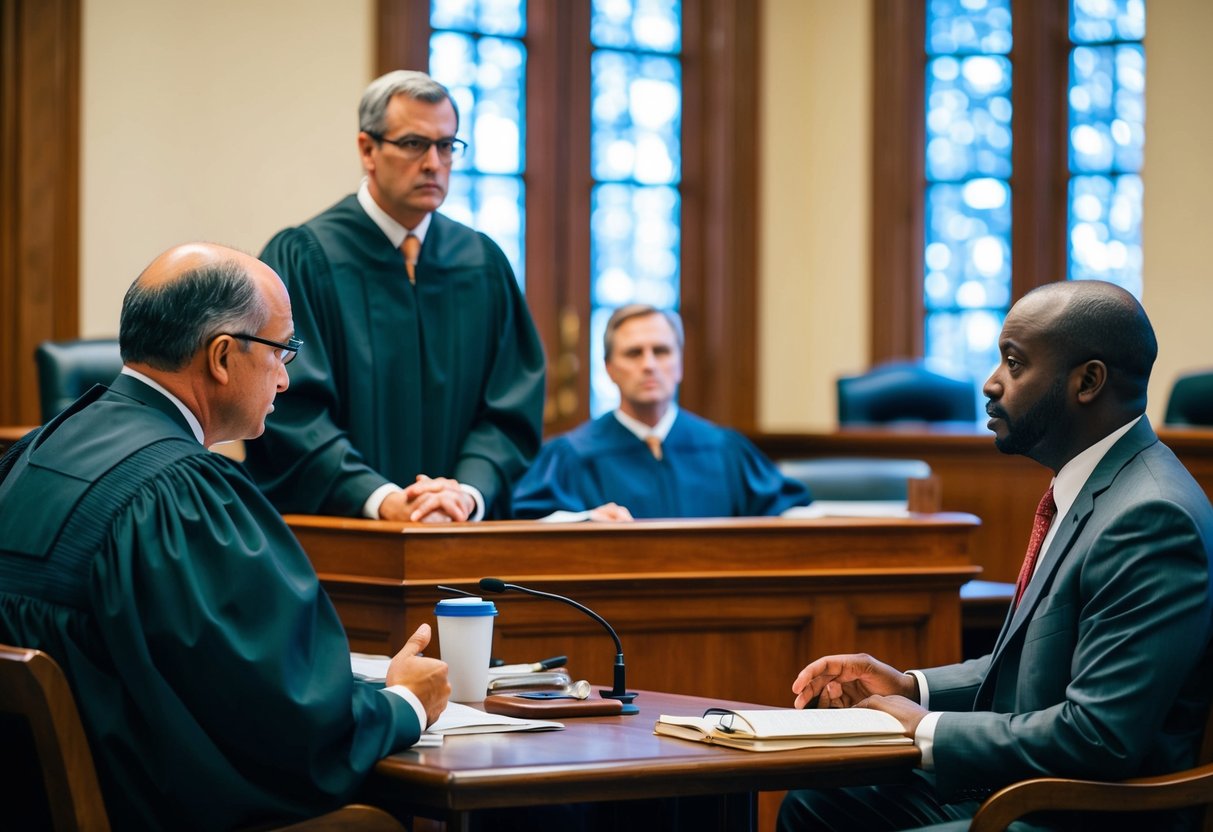Understanding Georgia Drug Offense Classifications
Drug offenses in Georgia are classified based on the type and amount of drugs involved. Each classification carries different legal consequences.
Controlled Substance Schedules and Their Significance
Controlled substances are categorized into Schedules I through V. Schedule I drugs, like heroin and LSD, have a high potential for abuse and no accepted medical use. Schedule II substances, including cocaine and meth, have accepted medical uses but also a high abuse potential.
Schedule III drugs, like anabolic steroids, have a moderate to low potential for physical and psychological dependence. Schedule IV substances, such as Xanax, have a low potential for abuse and dependence. Schedule V drugs, like cough preparations with less than 200 milligrams of codeine, have the lowest potential for abuse.
Penalties for possessing or trafficking these drugs vary significantly. More severe penalties apply to higher schedule drugs due to their potential for abuse and lack of medical use.
Distinction Between Simple Possession and Trafficking
Simple possession involves having a small amount of drugs for personal use. In Georgia, this usually applies to smaller quantities of substances like marijuana, cocaine, and heroin. Penalties for simple possession can include fines, community service, and in some cases, jail time.
Drug trafficking involves larger quantities. Trafficking in substances like meth or cocaine results in harsher penalties, including mandatory prison sentences. The law treats trafficking very seriously due to the potential impact on the community.
Knowing these distinctions helps in preparing an appropriate defense for drug charges. Detailed knowledge of amounts and types involved is crucial in legal proceedings.
Legal Defenses Against Drug Charges in Georgia
When facing drug charges in Georgia, there are key legal defenses that could help. These include unlawful search and seizure violations, the role of evidence, and entrapment defenses.
Fourth Amendment Violations and Unlawful Search and Seizure
In many drug cases, the way evidence is obtained is crucial. If law enforcement conducted an unlawful search and seizure, the evidence might be thrown out. The Fourth Amendment protects us from warrantless searches.
A search warrant is usually required. If police didn’t have one, or if the warrant was invalid, the search might be illegal. Probable cause must support the warrant. Our criminal defense attorney would scrutinize how the search was conducted to see if it violated our rights.
Examining the Role of Evidence in Drug-Related Prosecutions
Evidence plays a major role in drug charges. For drug possession charges, the prosecution must prove ownership or control over the drugs, known as constructive possession. If multiple people are present, it can be hard to prove who actually possessed the drugs.
We might argue there was a lack of possession or challenge the chain of custody. Proper handling of evidence is critical. If there are doubts about the evidence’s integrity, reasonable doubt may arise, weakening the prosecution’s case. Consulting with a criminal defense attorney can help us find weak points in the evidence.
Arguing Entrapment and Other Affirmative Defenses
Entrapment occurs when law enforcement induces someone to commit a crime they wouldn’t normally commit. If we can prove entrapment, it can be a strong defense. This often involves showing that authorities pushed someone into committing the drug offense.
Other defenses might include arguing that the accused was unaware of the drugs’ presence or that they were not in possession of drugs. For example, residue found might not be enough to prove possession. A thorough review by our lawyer can help in identifying and establishing these defenses. Free consultations can be valuable in discussing potential strategies.
Consequences and Remediation of Drug Convictions
Drug convictions in Georgia can lead to severe penalties, including hefty fines, incarceration, and probation. There are also alternative sentencing options such as drug courts and conditional discharge that providing avenues for treatment and rehabilitation instead of punishment.
Understanding Penalties: Fines, Probation, and Incarceration
Drug charges in Georgia can bring significant penalties. For example, possession of Schedule V drugs like Xanax or Valium can result in hefty fines. If convicted of felony charges for possessing harder substances like MDMA or morphine, individuals may face lengthy prison time.
Probation is often a part of these penalties, allowing some to serve time under supervision rather than in jail. This option might be available in cases involving personal use or prescription drugs, such as oxycodone and hydrocodone. Jail time and fines vary according to the type and quantity of the controlled substance involved.
Alternative Sentencing and Georgia’s Drug Courts
In Georgia, drug courts offer an alternative to traditional sentencing. These programs focus on treatment and rehabilitation over incarceration. This is useful for individuals facing drug charges, as it helps them work toward recovery.
Participants in these programs often undergo drug treatment, community service, and regular check-ins with the court. This method proves especially effective for repeat offenders and those convicted for the possession of drugs like anabolic steroids and ketamine. By complying with the program, individuals can avoid harsher penalties and make strides toward bettering their lives.
Impact of Drug Crimes on Criminal Records and Conditional Discharge Opportunities
A drug conviction in Georgia can significantly impact one’s criminal record, affecting future employment and housing opportunities. However, there are remediation methods, such as conditional discharge, available for first-time offenders.
Conditional discharge allows individuals to complete drug treatment or probation without receiving a permanent mark on their records. This is particularly useful for those caught with possession of marijuana or prescription drugs like Ambien. After meeting the set conditions, the charges are dismissed, offering a second chance without the burden of a criminal record.




